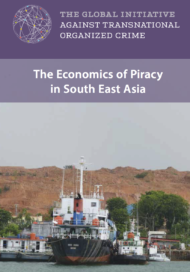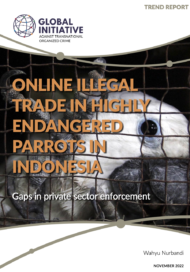Posted on 21 May 2016
In 2010, the UN published a report, “The Globalisation of Crime” which stated that “Until .. the recent and dramatic increase of piracy off the Coast of Somalia … piracy was a phenomenon in decline … thanks to effective and coordinated international action against the pirates”. Though this may have been true for Somalia, elsewhere in the world it has proved to be anything but in decline.
The waters of South East Asia have rapidly recovered their status as the principle threat to world shipping.
This report, “The Economics of Piracy in South East Asia” authored by Karsten von Hoesslin for the Global Initiative against Transnational Organised Crime, argues that South East Asian piracy*, and in particular its Indonesian variety, presents a constant and considerable challenge, not only to the shipping industry, but also to the integrity and rule of law of the states in the region. It is a force deeply rooted in the history and geography of the region, and is highly adaptive to changing economic realities.
Since the International Maritime Bureau (IMB) started collecting reliable statistics in 1993, nearly 60% of all piracy incidents reported anywhere in the world have occurred in Asia, and a full two thirds occurs within South East Asia. Indonesia alone accounts for 23% of world piracy.
This report seeks to put South East Asian piracy in its historical context, to study the rise in piracy in South East Asia during the last five years, and to examine in detail the business model that has driven it. This then offers a forward looking analysis of what the future holds, and how piracy of this type may best be contained by law enforcement and international organisations.
*In this report, piracy should be understood as the seizure of a ship by force, or any act likely to endanger its crew or cargo – the usage defined by the SUA Convention, as adopted in 1988 and amended in 2005. This usage considers it irrelevant where the piracy occurred, unlike the UN Convention on the Law of the Sea (UNCLOS) which specifies that piracy must occur outside of a state’s territorial waters. UNCLOS would classify those incidents occurring within territorial waters as an act of armed robbery or theft at sea.




